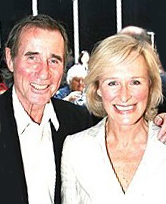A Quote by Mason Cooley
The grand style is available now only in old poems, museums, and parodies.
Related Quotes
Institutional psychiatry is a continuation of the Inquisition. All that has really changed is the vocabulary and the social style. The vocabulary conforms to the intellectual expectations of our age: it is a pseudo-medical jargon that parodies the concepts of science. The social style conforms to the political expectations of our age: it is a pseudo-liberal social movement that parodies the ideals of freedom and rationality.
I do feel that now and I feel that this development of recording poems, of speaking poems at readings, of having records of poets, I think this is a wonderful thing. I'm very excited by it. In a sense, there's a return, isn't there, to the old role of the poet, which was to speak to a group of people, to come across.
When I worked on a magazine, I learned that there are many, many writers writing that can't write at all; and they keep on writing all the cliches and bromides and 1890 plots, and poems about Spring and poems about Love, and poems they think are modern because they are done in slang or staccato style, or written with all the 'i's' small.
Step into this moment, because it is the only one you have right now. It is not wasted or thrown away. The divine opportunity could be stolen unless you tell yourself it is here right now; available to you this moment, to make of it anything you choose. Why not choose this moment, right now, to be available to yourself by declaring, I AM GOOD! . . . . The richness of the present is here. The fullness of now is present. If you are not here now, it means you could be missing the love, joy, peace and brand-new ideas that are here right now.
These are crystalline - oftentimes incandescent - translations of Juarroz's powerful metaphysical poems where eternity and silence jut up against a world where “writing infects the landscape” and there are “more letters than leaves” - The kind of match one hopes for where both the translator and the poet are in luck; new poems which don't leak and yet old poems in which the original passion shines.




































